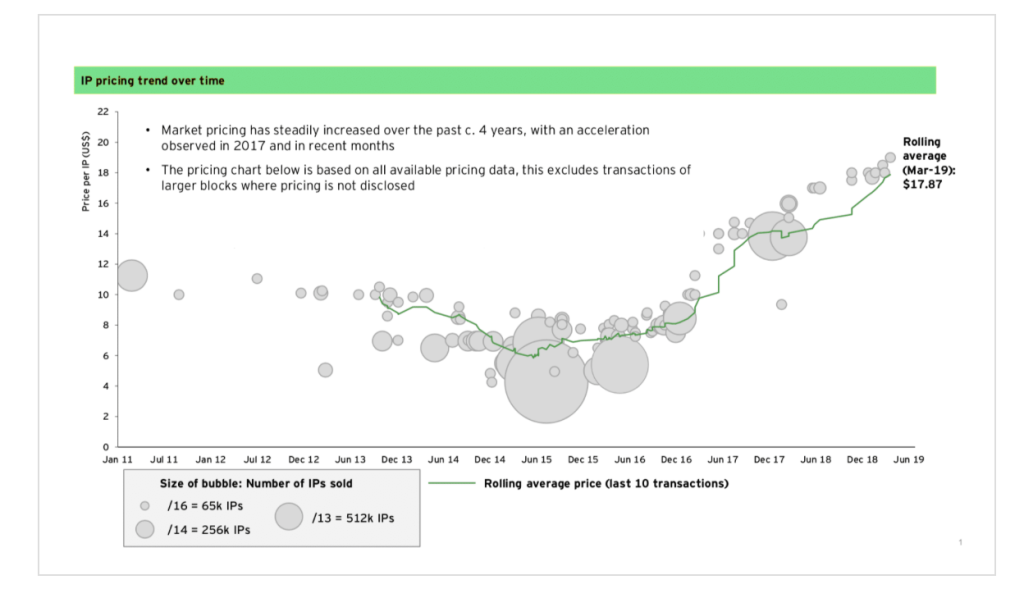The demand for IPv4 addresses has never been higher. With the global supply of IPv4 fully allocated, businesses and service providers that need to maintain or expand their online presence are turning to the secondary market to obtain these valuable digital assets.
Buying IP addresses has become a strategic necessity for companies that want to sell IPv4 effectively and profitably.
Understanding the process of acquiring and selling IP addresses is crucial for anyone looking to navigate this specialized marketplace successfully.
Acquiring IPv4 addresses begins with identifying reputable sources. Regional Internet Registries (RIRs) such as ARIN, RIPE NCC, APNIC, and LACNIC oversee the allocation and transfer of IP addresses.
These organizations maintain strict guidelines for ownership and transfer, ensuring that addresses are legitimate and properly documented. Buyers must research and select trusted brokers or sellers who comply with these regulations.
Working with verified sources minimizes risk and ensures that acquired addresses can be legally transferred to new owners when the time comes.
The next step to Buy IP Address involves evaluating the size and type of blocks available.
IP addresses are typically sold in subnets, which range in size from small allocations to larger blocks that can accommodate multiple clients or devices.
Determining the appropriate block size depends on current needs, anticipated growth, and potential resale opportunities.
Smaller blocks may be easier to sell quickly, while larger blocks offer the potential for higher returns but require a greater initial investment. Strategic planning at this stage helps buyers maximize both usability and profitability.
Pricing is a key consideration in the process. The market for IPv4 is driven by supply and demand, and scarcity has caused prices to rise steadily over time.
Buyers should compare rates from multiple sellers, taking into account the quality of the address blocks, any historical reputation issues, and associated transfer fees.
Understanding the market value of different block sizes and types allows buyers to negotiate effectively and secure favorable deals. This knowledge also helps sellers determine competitive pricing when offering their inventory for resale.
Once addresses are purchased, verifying their status is essential. Not all IPv4 addresses are equal; some may have been previously used for spam, blacklisting, or other network violations. A thorough audit of the addresses ensures that they are “clean” and ready for transfer.
Maintaining a verified inventory builds trust with potential buyers and increases the likelihood of successful sales. A reputation for offering high-quality, reliable IP addresses is one of the most important assets a seller can cultivate in this market.
Compliance with RIR transfer policies is another critical component of the process. Each registry requires proper documentation proving ownership before an address block can be transferred to a new party.
Buyers should familiarize themselves with these requirements to ensure a smooth transfer when selling IPv4.
Having clear records of acquisition and maintaining good communication with the relevant registry facilitates faster approvals and reduces potential disputes or delays.
Inventory management plays a strategic role in maximizing profitability. By purchasing a diverse range of address blocks, sellers can cater to various client needs.
Some buyers may require only a small block for short-term projects, while others might need larger allocations for network expansion. Holding different block sizes allows sellers to serve a broader market and respond quickly to varying demand.
Additionally, owning multiple blocks enables sellers to break down larger allocations into smaller, more profitable units, providing flexibility and increased revenue potential.
Timing is another factor that can impact success. The value of IPv4 addresses is influenced by market trends, including increased internet usage, business expansion, and the gradual adoption of IPv6.
By monitoring these trends, buyers and sellers can anticipate periods of higher demand and adjust their strategies accordingly.
Buying addresses ahead of anticipated demand ensures readiness to meet market needs, while timely sales maximize returns and minimize holding costs.
Risk management is essential throughout the process. The IPv4 market, while lucrative, involves financial and operational risks.
Buyers should ensure that addresses are purchased from credible sources, that they have verified the quality of the blocks, and that they are compliant with registry requirements.
Diversifying inventory, monitoring market trends, and maintaining clear records are all steps that help mitigate potential risks and ensure a sustainable approach to buying and selling IPv4.
Finally, understanding the long-term value of IPv4 addresses is critical. Even as IPv6 adoption continues, IPv4 remains indispensable for many businesses, devices, and legacy systems.
This persistent demand ensures that businesses investing in IPv4 inventory have opportunities for ongoing revenue.
By strategically acquiring addresses, verifying their quality, and maintaining compliance with registry policies, sellers position themselves to capitalize on the market while building credibility and trust with buyers.
In summary, the process of buying IP addresses and selling IPv4 involves careful planning, thorough verification, compliance with transfer policies, and strategic inventory management.
Establishing relationships with reputable brokers or sellers, understanding block sizes and market pricing, and maintaining a clean, documented inventory are all essential steps.

By approaching the market with foresight and attention to quality and compliance, businesses can navigate the secondary IPv4 market successfully, ensuring both profitability and long-term sustainability.